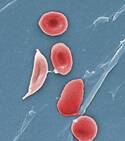Author Interviews, Immunotherapy, Lymphoma / 27.01.2025
Combining Chemotherapy with Immunotherapy Tackles Hard to Treat Lymphoma
MedicalResearch.com Interview with:
Joshua Brody MD
Director, Lymphoma Immunotherapy Program
Icahn School of Medicine at Mount Sinai
Hess Center for Science and Medicine
New York, New York 10029
MedicalResearch.com: What is the background for this study?
- Patients with relapsed diffuse large B-cell lymphoma (DLBCL) have poor outcomes.
- Standard chemotherapy e.g. Gemcitabine + Oxaliplatin (GemOx) yields complete response in ~30% of these patients.
- Epcoritamab, a CD3xCD20 bispecific antibody immunotherapy was recently approved for relapsed DLBCL as monotherapy but is not yet approved as part of combination therapy.
- Other immunotherapies e.g. CAR-T have been difficult to combine with standard therapies.













